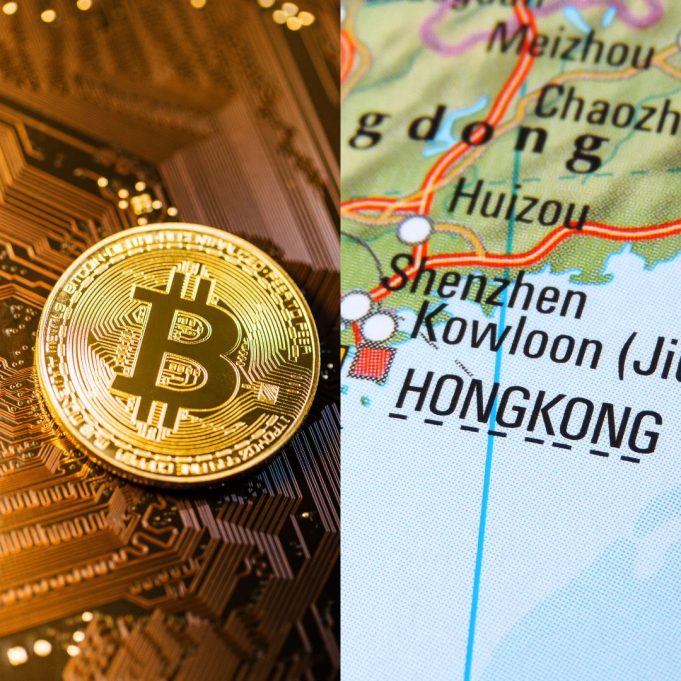Bitcoin prices have remained in the low $20,000s for weeks, and ConsenSys Chief Cryptoeconomist Lex Sokolin doesn’t expect them to shift much in the near future. However, Justin Sun, founder of Tron, believes that Hong Kong’s new digital asset licensing strategy could lead to a change in attitude in mainland China, potentially impacting the crypto market. Investors should keep an eye on developments in Hong Kong to see if they have any effect on the crypto market.
Bitcoin, the largest cryptocurrency by market capitalization, has been trading in the low $20,000s for much of this year. Lex Sokolin, chief cryptoeconomics officer for blockchain software technology firm ConsenSys, believes that high inflation is the root cause of this entrenchment. Despite a 40% rise in BTC and nearly as much for ether, the second largest crypto in market value, their momentum has stalled recently due to weak jobs and price data. This has left many wondering if Bitcoin is fated to remain in its current range or if it will break out and reach new heights.
The current market regime is characterized by stubborn inflation and central banks committed to raising rates until inflation cools. This has led to suppressed multiples in tech equities and crypto assets, as well as a potential danger to the housing market. Consumers have fewer assets for discretionary spending, limiting participation in Web3 commerce. Institutions are waiting for further regulatory clarity, and enforcement actions add to the uncertainty. However, the good news is that many of the poorly structured actors of 2022 have been revealed, and the market is processing the consequences. Overall, the market is still in a state of flux, and investors should remain cautious.
Cryptocurrencies, including Ether, have been performing well despite ongoing economic and inflation-related concerns. Ether was recently trading at $1,650, up 2.1% from Tuesday. Sokolin, an expert in the field, believes that the upcoming Shanghai upgrade will significantly reduce the risk associated with staking activity in the Ethereum network. The CoinDesk Market Index, a measure of crypto market performance, was up 1.8% for the day, with the Computing and DeFi sectors gaining 17.5% and 11.1%, respectively. Computing has risen about 80% in 2023. Overall, the crypto market is showing signs of resilience despite the current economic climate.
CoinDesk Indices Managing Director Jodie Gunzberg recently spoke on CoinDeskTV about the surge in interest in AI tokens, particularly Computingr. She noted that while Computingr does not make up a large portion of the market in terms of market cap, there is still a lot of potential in the token. Gunzberg highlighted ChatGPT as one of the AI tokens that has been dominating the conversation, and noted that it has seen some spectacular performance. She concluded that there is a lot of opportunity in the AI token market.
Justin Sun, founder of the Tron blockchain and the Huobi crypto exchange, is looking to capitalize on the potential of Hong Kong as a virtual asset hub. He recently announced that Huobi will apply for a virtual asset service provider (VASP) license in Hong Kong, which will enable the exchange to launch Huobi Hong Kong. Sun is confident that Huobi will secure the license, as it is one of the leading blockchain exchanges in the region. With the new requirements going into effect in June, this could be a great opportunity for Huobi to expand its presence in the region and become a major player in the virtual asset market.
Huobi and OKX, two of the world’s top 15 crypto exchanges, are both seeking licenses to operate in Hong Kong’s crypto market. This move comes as Beijing sees Hong Kong as an experiment zone for cryptocurrency. Huobi, which is based in Singapore, ranks 15th in overall trading volume according to CoinMarketCap data, while OKX, based in Seychelles, ranks 8th. This move could potentially open up the Hong Kong crypto market to more investors, as well as provide a gateway for Chinese investors to access the global crypto market. With the potential of increased investment and access to the global market, Hong Kong could become a major hub for cryptocurrency trading.
China’s relationship with cryptocurrency has been tumultuous, but the country is now looking to Hong Kong as a potential experiment to see if crypto can be regulated. The Securities and Futures Commission (SFC) of Hong Kong has extended a lifeline to crypto companies, allowing them to operate in the region. If the experiment is successful, it could lead to a change in attitude in Beijing and potentially open up the crypto market to retail traders. The success of this experiment could be a game-changer for the crypto industry in China.













